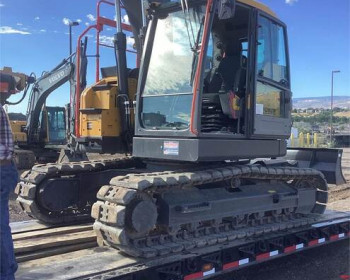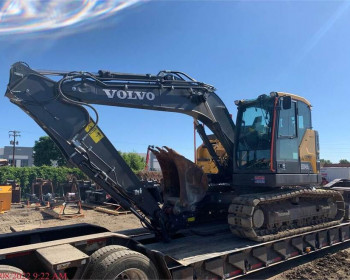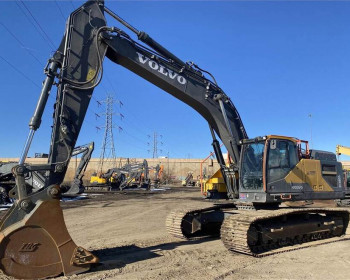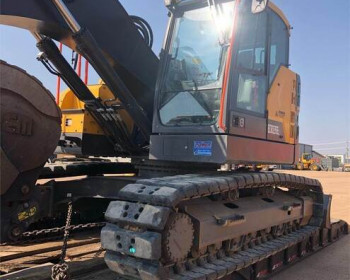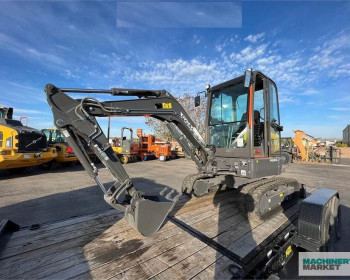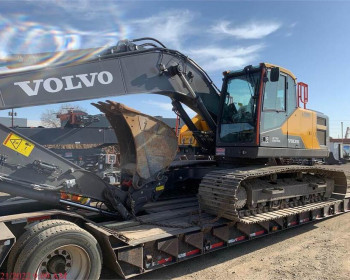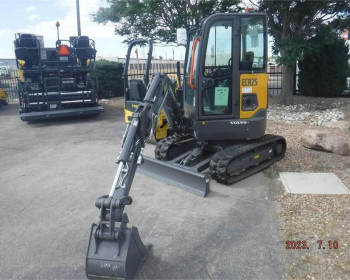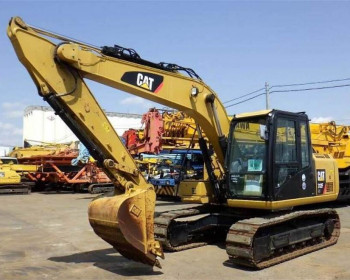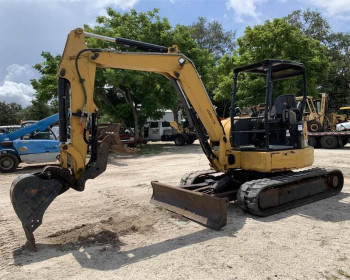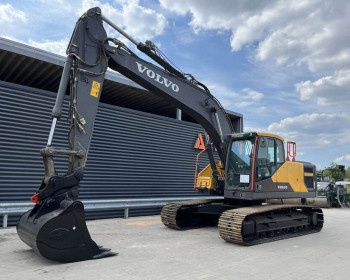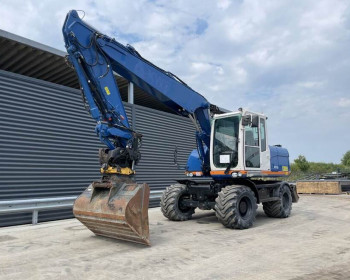Fixtures of the Construction Industry: Excavators
Excavators are among the essential equipment needed on every construction site. These robust
and powerful machines are used for demanding tasks such as digging, trenching, and loading
trucks. There are different models of excavators available based on performance, durability,
and the type of work to be done.
We offer a wide range of excavator types in this category, which will make your tasks easier
and more efficient. If you are in search of an excavator for your new project, you can find
listings from various brands here machinerymarket.com has second-hand excavator listings from
leading brands such as Hidromek, Cat, Komatsu, Volvo, JCB, Kobelco, and more.
What is an Excavator and What is it Used for?
An excavator is one of the most important construction machines in the construction sector.
These vehicles consist of a bucket, arm, rotating cab, and moving tracks, and they are
commonly used for tasks related to earthworks. They excel in digging capabilities and are
utilized for tasks such as excavation, earthmoving, trenching, loading, and demolition. They
are also known as diggers. On construction sites, at least one excavator is required for the
removal and transportation of large amounts of soil from one place to another.
What are Excavators Used for?
Excavators are widely used in construction, mining, environmental landscaping, and forestry
sectors. Their main purpose is typically related to digging and moving soil. They are
responsible for tasks such as foundation excavation, road construction, and building
demolition. As heavy equipment, excavators significantly reduce the workload by completing
tasks in a much shorter time compared to manual labour. Additionally, these machines can be
used for various purposes with different attachments. Due to their different sizes and types,
each excavator has its own range of applications and purposes.
For example, mini excavator models are used for digging and drilling in small and narrow
spaces. They are among the most preferred models due to their versatile use. We can see these
machines in small-scale applications such as landscaping. On the other hand, larger excavator
models are predominantly used in industrial tasks, earthmoving, heavy lifting, and projects
such as road and tunnel construction. These machines weigh between 45-80 tons.
Excavator selection should be done based on the site and industry requirements, considering
the appropriate size and combining it with the right attachments for more functional use. This
can provide significant convenience and efficiency in terms of work.
Features of Excavators:
● They are robust and durable, designed for heavy-duty tasks. They enable easy
completion of various different jobs.
● Depending on the intended use, they may need to be equipped with different
attachments. For example, a demolition excavator may require a hydraulic breaker
attachment, or a digging and trenching excavator may need an auger attachment.
● Only excavator operators with a G driver's license are authorized to operate these
machines.
● Excavators come in two different types of movement systems: tracked (with crawler
tracks) and wheeled. The most suitable and safe model should be chosen based on the
terrain conditions, whether it is flat or rough.
● They are commonly used for land clearing, demolition, digging, construction sites,
foundation excavation, and earthmoving tasks.
Types of Excavators:
Excavators come in different types, categorized based on the nature of the work, movement
systems, technical specifications, and tonnage. Let's briefly discuss the varieties of these
machines:
Crawler Excavator: These are heavy-duty machines that move on tracks, mainly used for
rough and muddy terrains. They are preferred for mining and heavy construction tasks due to
their stability. Crawler excavators cannot travel long distances on their own and require
transportation by a carrier vehicle.
Wheel Excavator: Designed to move on wheels, these excavators are suitable for flat asphalt
surfaces. They offer advantages such as easy mobility without the need for transportation.
They can perform tasks like transportation, loading, digging, and trenching. It's important to
note that when working, the support legs should be firmly placed on the ground, and not
solely rely on the wheels.
Mini Excavator: These machines, weighing up to 11 tons, are used in small and narrow areas
that require precision work. They are commonly used in landscaping and road construction
projects that don't involve deep excavation.
Long Reach Excavator: Also known as demolition excavators, these machines are used for
demolishing buildings up to 200 feet in height. With a long arm and boom, this type of
excavator is not suitable for confined spaces. They are used for tasks like excavating debris
and reaching inaccessible areas.
Suction or Vacuum Excavators: These machines are preferred for underground works and
excavation projects that require a precise operation. They have water jets and high-pressure
vacuum systems to clean dirt and debris.
Zero Tail Swing Excavators: These excavators have excellent manoeuvrability in tight
spaces. They are used for tasks such as pool excavation, residential projects, and small-scale
cleaning. The attachments of this type extend from above the cabin, making them more
convenient for challenging turns.
Are Excavators and Backhoes the Same Thing?
The difference between excavators and backhoes lies in size, weight, and functionality.
Backhoes, also known as backhoe loaders have a smaller design. They are preferred for
smaller tasks as they have less power and carrying capacity. Backhoes have similarities with
excavators in terms of using almost the same attachments. However, the most significant
difference lies in the rotation range. Backhoes have a rotation capability of 200 degrees, while
excavators are designed to make a complete circle.
What to Consider When Buying a Used Excavator:
- Analyze the type of work to be done and choose equipment that is suitable for it. For
smaller jobs, a large excavator may be excessive, while choosing a mini excavator for heavy
tasks will reduce your productivity. - Find out which attachments are included with the excavator you're purchasing and ensure
they are suitable for your specific job. - The bucket is a crucial part of an excavator, so examine it carefully. If it shows excessive
wear and reduced cutting force, it may raise concerns. - Check the working hour counter. The number of working hours is an important detail
indicating the equipment's usage life. - Select an excavator with a bucket suitable for the type of soil you will be excavating.
- Pay attention to the tension of the tracks in crawler models and make sure they are
compatible with the ground you will be working on. - Inspect the machine for signs of wear, cracks, and bending. These could indicate improper
maintenance of the excavator. - Inquire about the equipment's service history and ensure that timely maintenance has been
performed. - Examine the condition of the tires and check the manufacturing date on them.
- Prior to purchasing a used machine, research whether the model has sufficient parts support
in the market. It is important for the equipment to be operational in case of any future issues.
Used Excavators are at machinerymarket.com :
You can explore listings on machinerymarket.com for used excavator prices. By purchasing used
equipment, you can save on your budget and increase the options for adding more equipment
to your workflow. You are at the right place to quickly and easily find machines from major
brands like Cat, Komatsu, Volvo, and more!
Make your offer on the equipment that suits you best and complete your purchase at
advantageous prices. If you want to sell your equipment, you can create a free listing and
reach buyers from around the world in no time.
